Presentation slides for this project are also available.
A few screenshots that capture the modified plug-in's functionality are provided below.
The workings of concernmapper.
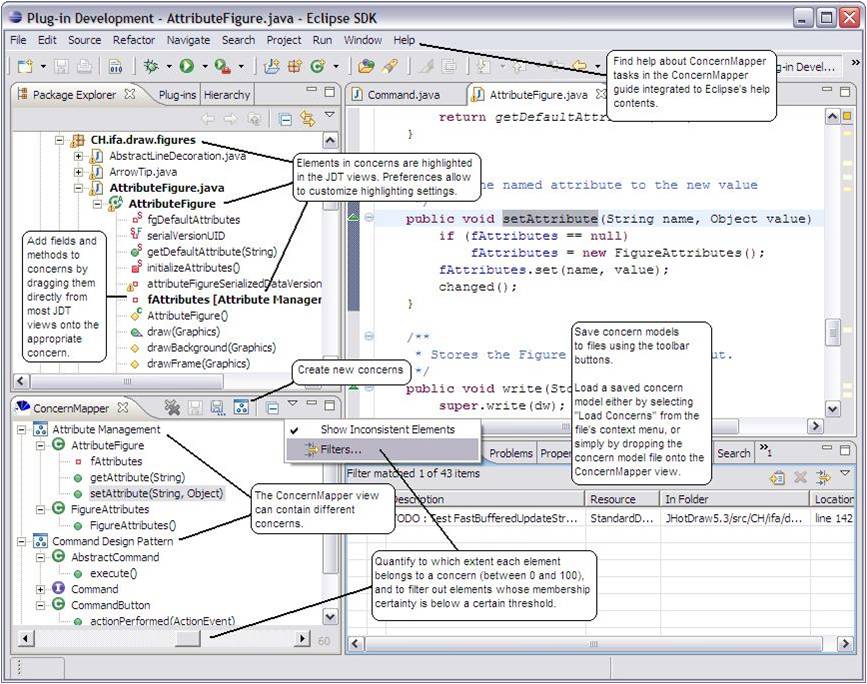
The extensible concernMapper with an extension running for detecting and allowing additions for regular files, e.g. an xml file.
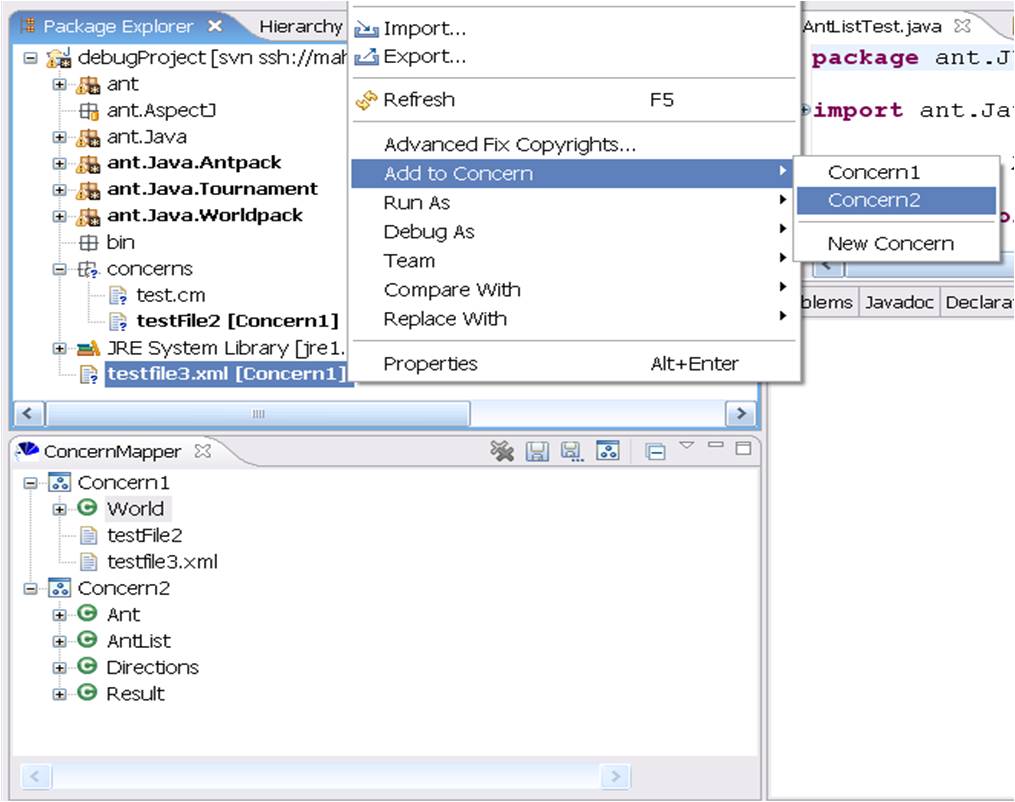
Sample code that performs the extension processing throught the eclipse platform.
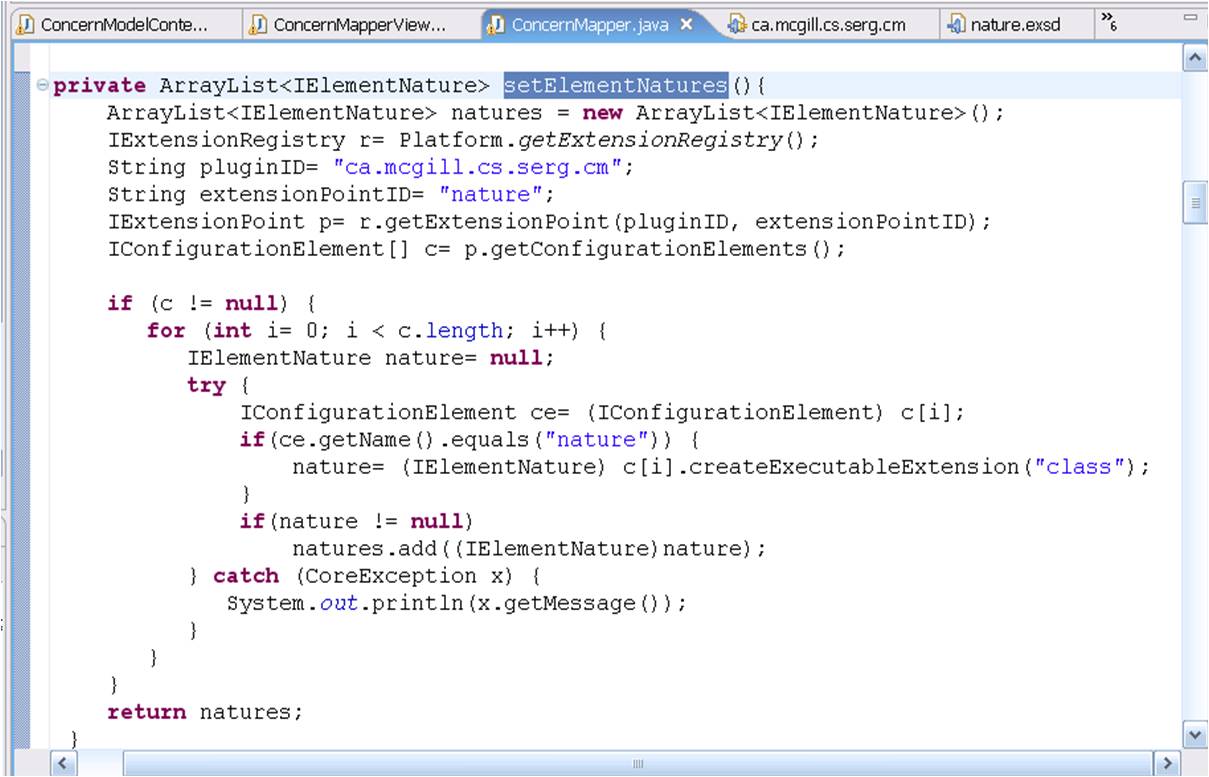
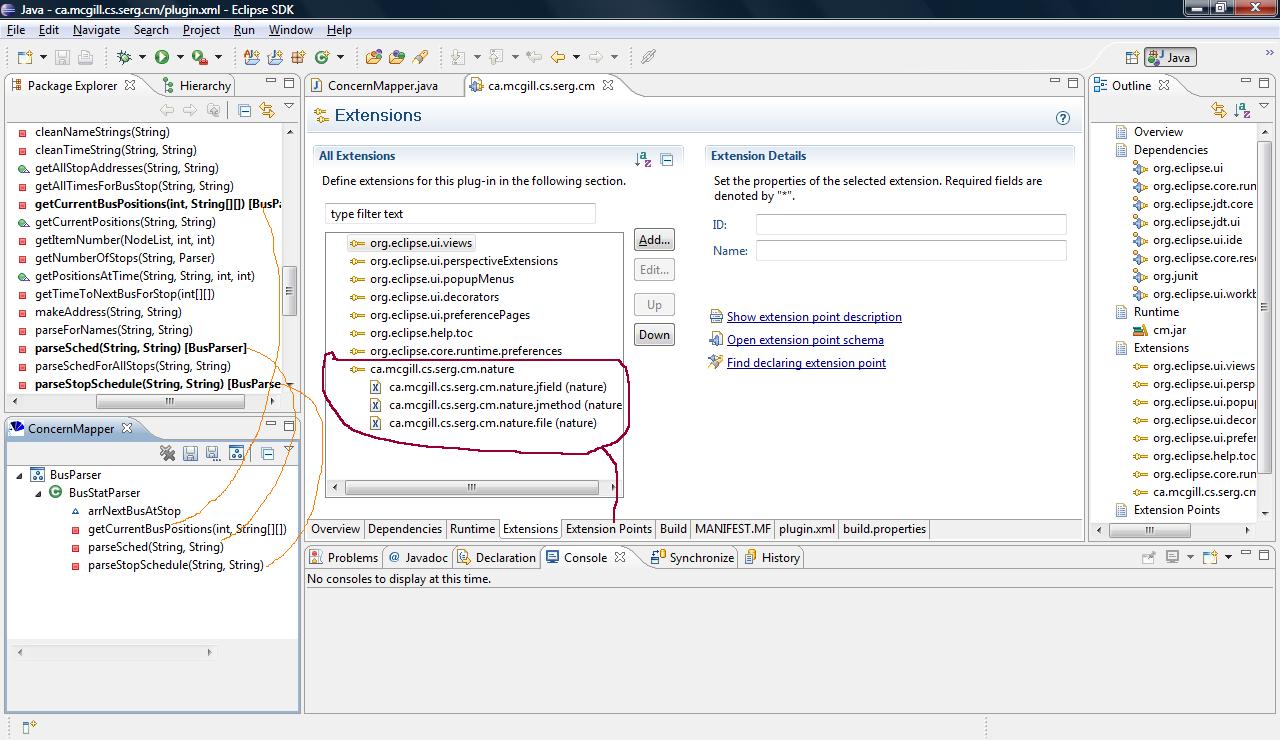
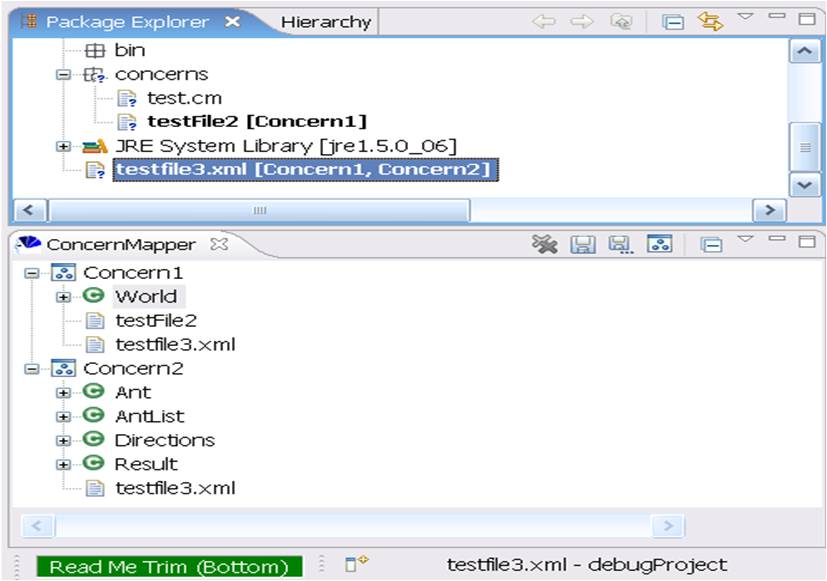
The original ConcernMapper currently being maintained by Professor Martin Robillard is available here.